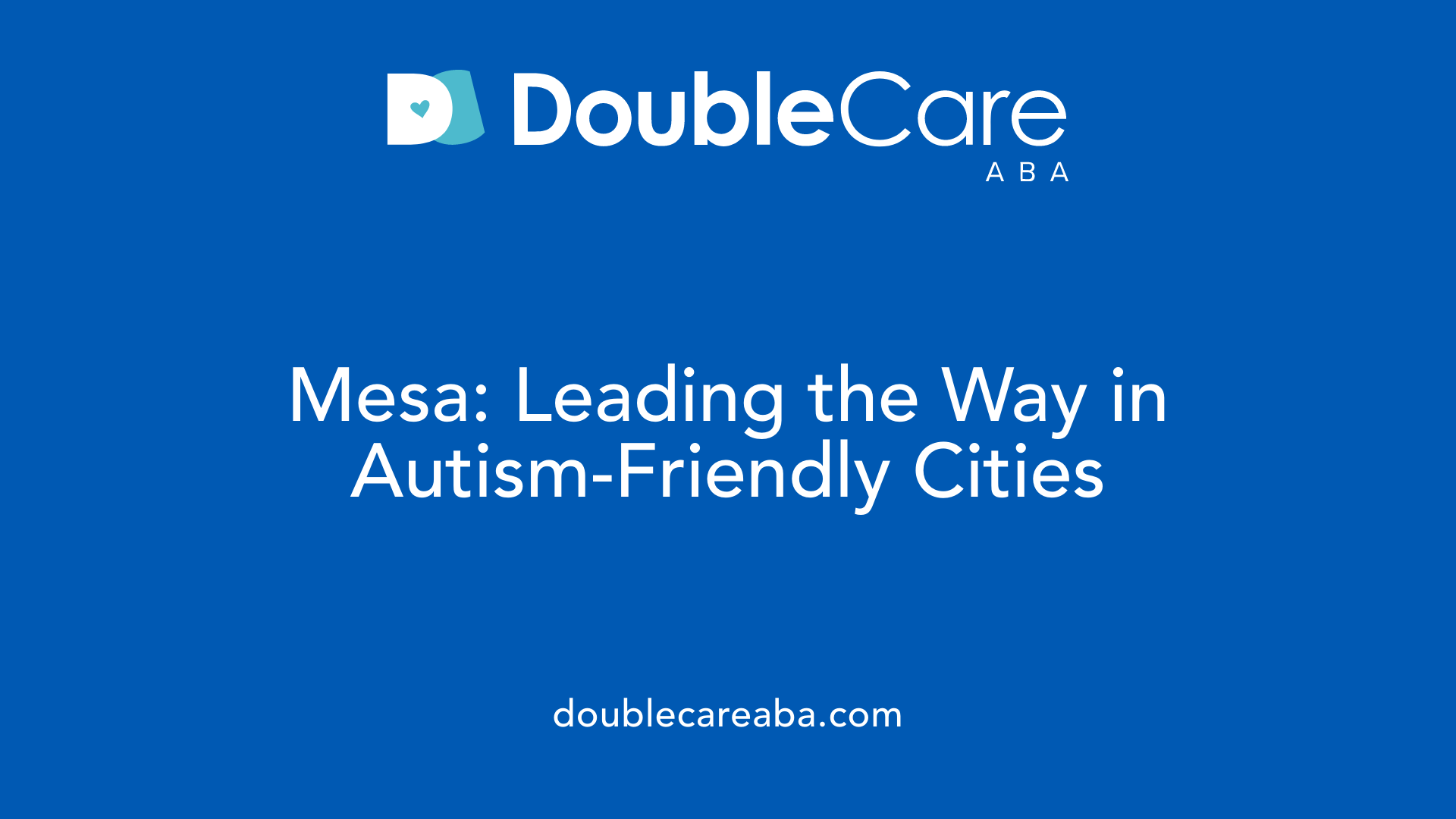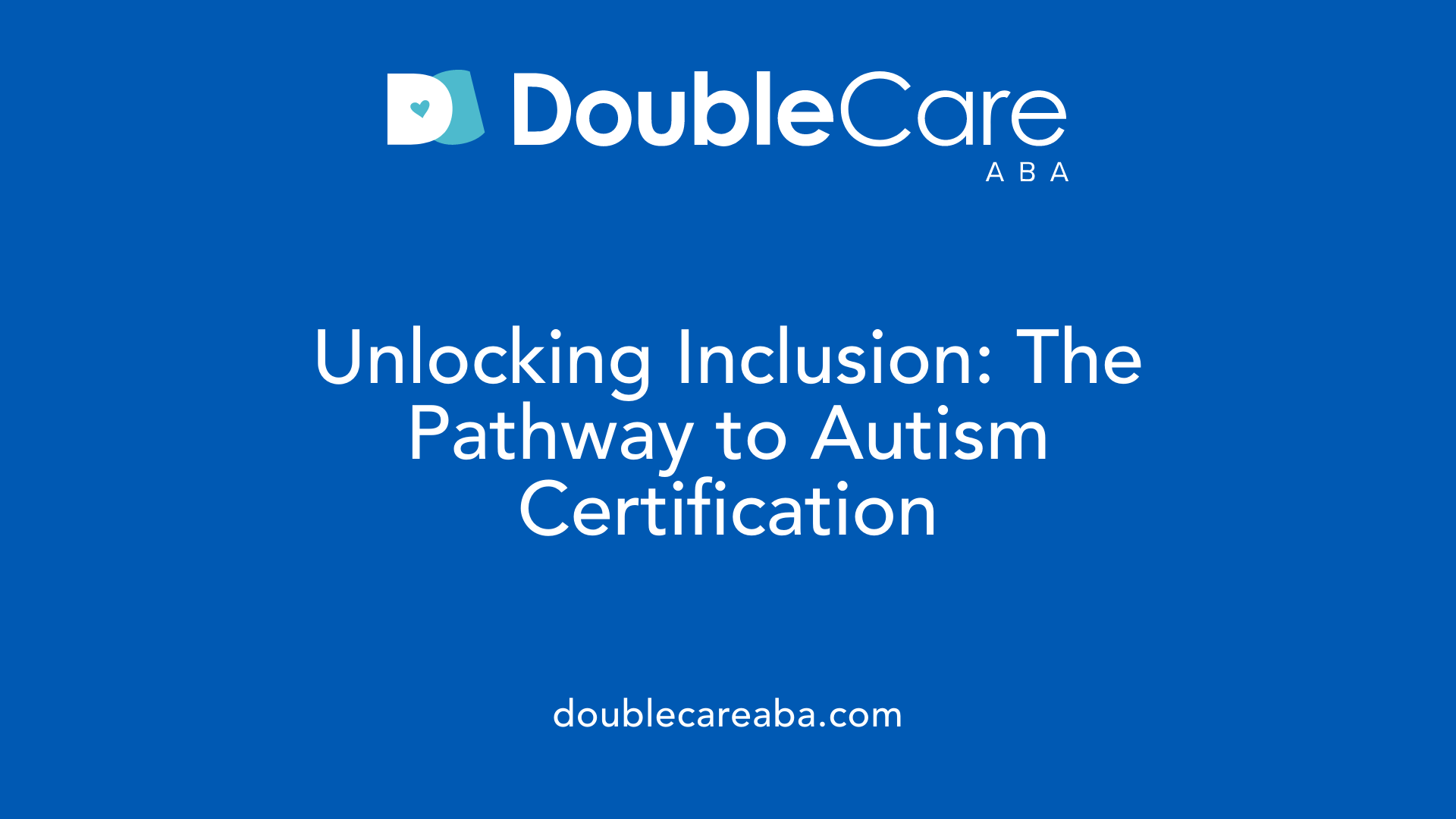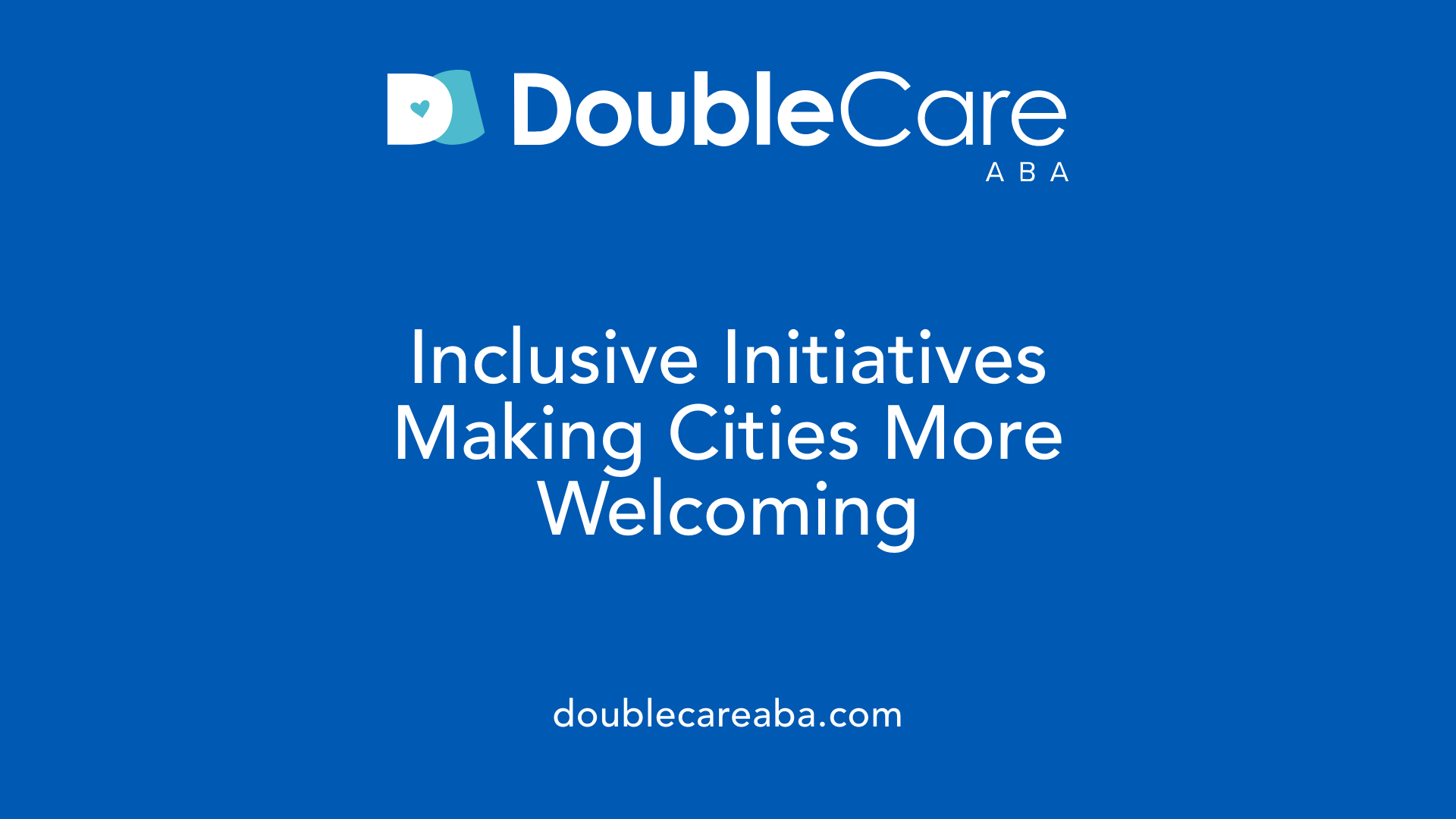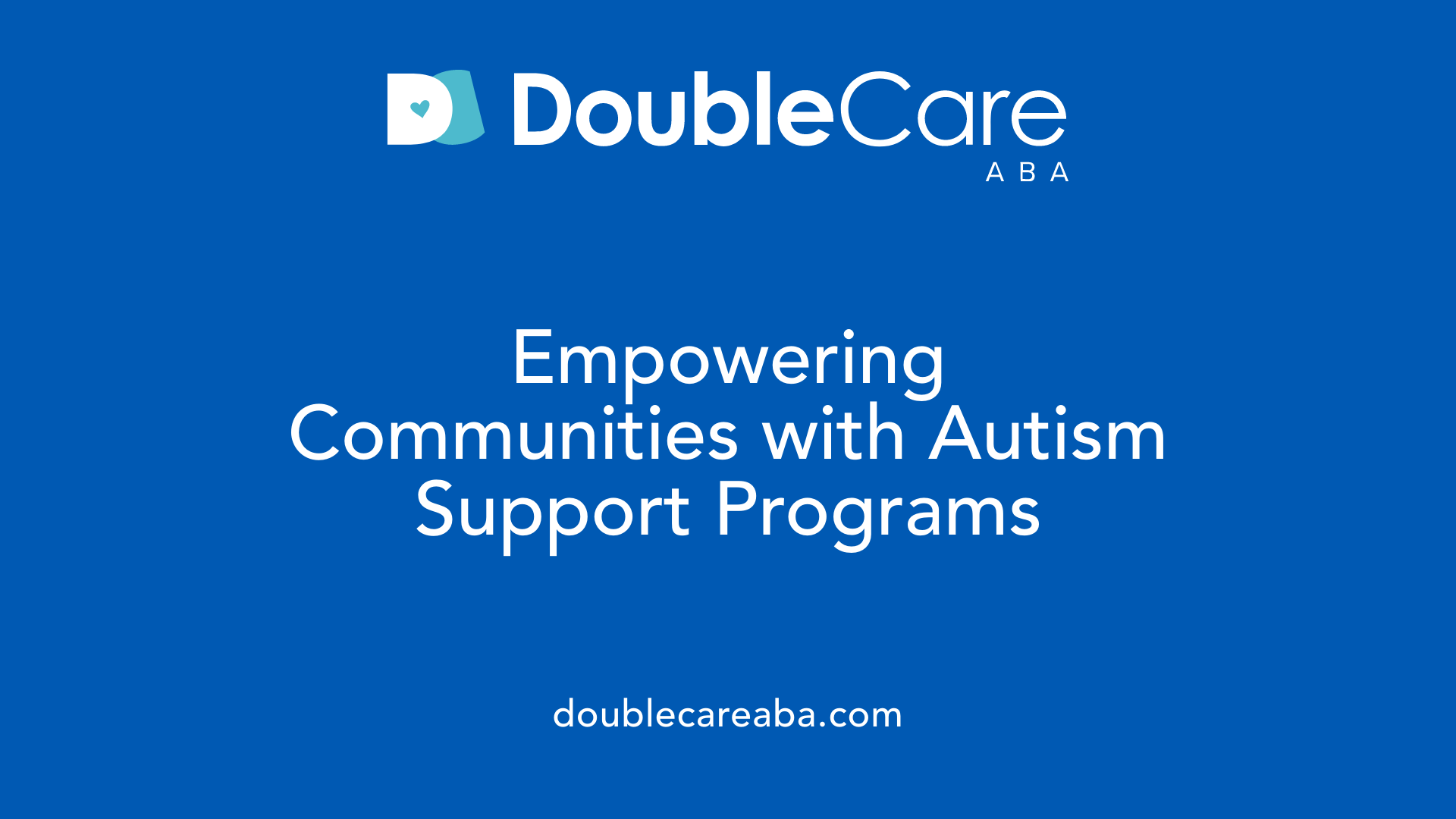Leading the Way in Autism Acceptance and Accessibility
In November 2019, Mesa, Arizona, achieved a historic milestone by becoming the first city in the United States to earn the Autism Certified City designation. This groundbreaking recognition reflects Mesa's unwavering commitment to fostering a welcoming environment for individuals with autism and their families. Over the past five years, Mesa has continued to build on its initial success, implementing diverse programs, training initiatives, and community partnerships that serve as a model for inclusive urban development across America.
Understanding the Significance of Mesa's Autism Certified City Status
 In November 2019, Mesa, Arizona, achieved a historic milestone by becoming the first city in the United States to receive the Autism Certified City designation from the International Board of Credentialing and Continuing Education Standards (IBCCES). This recognition marks Mesa’s commitment to fostering an inclusive environment for residents and visitors with autism.
In November 2019, Mesa, Arizona, achieved a historic milestone by becoming the first city in the United States to receive the Autism Certified City designation from the International Board of Credentialing and Continuing Education Standards (IBCCES). This recognition marks Mesa’s commitment to fostering an inclusive environment for residents and visitors with autism.
The certification signifies that Mesa has implemented comprehensive standards focused on accessibility, training, and community engagement. It involves rigorous assessments such as sensory guides for popular attractions and specialized staff training, ensuring that autistic and sensory-sensitive guests feel welcomed and accommodated.
More than 50 local businesses and nearly 8,000 community members have completed autism-specific training, demonstrating widespread community involvement. Notable programs include sensory kits at autism-friendly venues, the Accessibility Champion Program, and celebrations that promote autism acceptance.
Mesa’s efforts extend beyond training, adopting innovative initiatives such as the Hidden Disabilities Sunflower Program and the Destination Verified Seal from Wheel the World. The Parks and Recreation Department stands out as the first in the world to earn an autism-certified designation. Additionally, Visit Mesa offers autism-specific resources for lodging, dining, and attractions, making the city a comprehensive hub for neurodiverse visitors.
This pioneering certification has positioned Mesa as a leader in inclusive tourism and community support. It has inspired other cities, like Philadelphia, to pursue similar recognitions, underlining a broader commitment to diversity, equity, and inclusion.
In summary, Mesa’s Autism Certified City status signifies a city-wide effort to enhance accessibility, raise awareness, and create a welcoming environment for individuals with autism. It reflects a dedication to improving quality of life through inclusive initiatives that benefit residents and boost tourism.
What Is the Certification Process and What Are the Criteria?

Steps to certification
The process for a city to attain autism certification begins with a thorough evaluation of its current services and facilities. Cities typically submit detailed documentation outlining their infrastructure, community programs, healthcare services, and policies that support individuals with autism. Following this, they undergo assessments involving site visits, stakeholder interviews, and reviews of training programs.
In the case of Mesa, Arizona, for example, about 60 businesses and organizations completed autism-specific training, which was a vital step toward certification. This process also involves engaging community members in autism awareness initiatives to demonstrate broad-based support.
Required assessments and documentation
To obtain certification, cities must provide comprehensive evidence that they meet established standards. This includes documentation on autism-specific staff training, availability of sensory-friendly public spaces, and community outreach programs. For instance, Mesa launched programs like sensory kits and autism acceptance events that showcased their commitment.
Moreover, organizations like the International Board of Credentialing and Continuing Education Standards (IBCCES) review these documents, often conducting site visits for verification.
Key criteria for certification
The main criteria include offering specialized healthcare and support services, ensuring accessibility, and providing ongoing staff training on autism and sensory sensitivities. Mesa exemplifies these standards by having over 4,000 community members trained on autism, along with a range of autism-friendly attractions that have received renewal of their Certified Autism Center designations.
Certification bodies look for gender and age inclusiveness as well as community engagement initiatives that promote understanding and acceptance. For example, Mesa's programs such as the Hidden Disabilities Sunflower Program and sensory kits directly support these criteria.
| Step | Description | Examples | Importance |
|---|---|---|---|
| Initial Assessment | Submitting documentation & policies | Training records, community programs | Ensures baseline standards |
| Site Visits & Evaluations | Verification through on-site reviews | Facility audits, stakeholder interviews | Confirms compliance |
| Stakeholder Engagement | Community and business involvement | Autism acceptance events, sensory kits | Demonstrates community support |
| Certification & Renewal | Ongoing assessments for renewal | Renewal of Autism Certified City designation | Maintains high standards |
Ultimately, achieving autism certification signifies a city's dedication to inclusivity and comprehensive support for individuals with autism. It reflects a collaborative effort across community services, businesses, and government agencies to create accessible, understanding environments.
Key Initiatives that Promote Autism Inclusion

What initiatives and programs help cities become recognized as autism-inclusive communities?
Cities across the United States are making significant strides to become more autism-friendly through various innovative initiatives and programs. One notable example is Mesa, Arizona, which became the first city in the country to earn the Autism Certified City designation in November 2019. This prestigious recognition was awarded by the International Board of Credentialing and Continuing Education Standards (IBCCES). Mesa has successfully maintained this certification for five consecutive years, demonstrating a sustained commitment to inclusion.
Mesa’s approach includes training over 4,000 community members and more than 60 businesses in autism-specific and sensory-sensitive practices. These efforts are complemented by community programs like the Accessibility Champion Program and the distribution of sensory kits at autism-friendly locations. The city also celebrated autism acceptance through special events, highlighting a broad community commitment.
Similarly, Philadelphia has earned recognition as the first certified sensory inclusive city in the country, announced in December 2023. Led by the Mayor’s Office for People with Disabilities, the city trained more than 16,200 staff members across various sectors, including public transport and recreational facilities. Philadelphia also plans to implement a sensory-inclusive lending program in early 2024, aiming to increase access and support for individuals with sensory sensitivities.
Both cities exemplify how strategic initiatives foster community awareness and accessibility. From sensory-friendly programs to certification at prominent attractions like museums and parks, these efforts emphasize a city’s dedication to inclusivity.
Below is a comparison of their initiatives:
| City | Certification Body or Program | Number of Trained Community Members | Key Programs and Initiatives | Future Plans |
|---|---|---|---|---|
| Mesa | IBCCES | Over 4,000 | Sensory Kits, Autism Events, Accessibility Champions | Expand sensory and autism resources |
| Philadelphia | KultureCity, Mayor’s Office | 16,200+ | Sensory lending program, training in public sector | Broader sensory inclusion policies |
These efforts reflect a growing trend among cities to implement targeted programs that promote autism awareness, increase accessibility, and encourage community involvement.
More Info Search Query
Automated initiatives fostering autism inclusion in cities
Programs Supporting Autism Certification and Inclusion
 Cities and organizations aiming to foster autism-friendly environments can access a variety of programs designed to support certification and inclusion initiatives. One prominent organization, the International Board of Credentialing and Continuing Education Standards (IBCCES), offers research-based certification programs such as the Certified Autism Specialist (CAS) and Autism Certification (AC). These programs provide comprehensive training on autism support strategies, behavior management, early intervention, and effective communication techniques.
Cities and organizations aiming to foster autism-friendly environments can access a variety of programs designed to support certification and inclusion initiatives. One prominent organization, the International Board of Credentialing and Continuing Education Standards (IBCCES), offers research-based certification programs such as the Certified Autism Specialist (CAS) and Autism Certification (AC). These programs provide comprehensive training on autism support strategies, behavior management, early intervention, and effective communication techniques.
The training involved in these programs is often delivered through online modules, followed by exams and opportunities for continuing education credits. These certifications are valuable for professionals like educators, healthcare providers, support staff, and city officials who work directly with autistic individuals.
In Mesa, Arizona, for instance, over 60 businesses and organizations completed autism certification training, and more than 4,000 community members received autism-related education. This effort was part of Mesa’s broader initiative that included sensory kits at autism-friendly venues and programs like the Accessibility Champion Program.
Additionally, educational institutions like Saint Joseph's University provide autism spectrum disorder certificate programs. These prepare professionals to work effectively with autistic populations in various settings, including schools and community centers.
Furthermore, programs such as the Hidden Disabilities Sunflower and organizations like Wheel the World help cities develop inclusive services and promote awareness.
Overall, these accreditation and training initiatives serve as valuable resources for cities and organizations committed to enhancing services and recognition for the autism community.
| Program/Organization | Certification Offered | Focus Areas | How It Supports Cities/Organizations |
|---|---|---|---|
| IBCCES | CAS, AC | Autism support, behavior management | Guidance, online training, continuing education |
| Saint Joseph's University | Autism Spectrum Disorder Certificate | Professional training for workplaces | Preparedness for autism-focused service delivery |
| Wheel the World | Destination Verified Seal | Inclusive tourism, accessibility | Promotes accessible travel services |
| KultureCity | Sensory Inclusive Certification | Sensory inclusion in public spaces | City-wide sensory inclusion initiatives |
Advancements and Recognition Beyond Mesa
 Other cities are making notable progress in becoming more autism-friendly and inclusive for all residents.
Other cities are making notable progress in becoming more autism-friendly and inclusive for all residents.
A prime example is Philadelphia, which has been recognized as the first certified sensory inclusive city by KultureCity. This recognition was announced on December 19, 2023, and highlights the city's extensive efforts in sensory accessibility. Over 16,200 city workforce members received specialized training in sensory awareness and inclusion, equipping them to better serve autistic and sensory-sensitive individuals.
Philadelphia is also working toward rolling out a sensory-inclusive lending program planned for early 2024. This program aims to provide sensory tools and resources to those who need them, promoting a more accessible environment for visitors and residents.
The city’s initiative forms part of a larger commitment to embracing diversity, equity, and inclusion (DEI). By fostering awareness, modifying infrastructure, and educating the public, Philadelphia is setting a standard for other urban areas seeking to become more welcoming for people with sensory sensitivities.
Cities like Philadelphia demonstrate that successful autism-friendly policies require multiple strategies, including public training, community programs, and supportive policies. Such approaches not only improve quality of life for autistic individuals but also foster a broader sense of community acceptance and understanding.
Global innovations are also emerging, with various cities adopting programs similar to Mesa’s autism certification initiatives and beyond. These efforts collectively advance the goal of creating cities where everyone, regardless of sensory or developmental differences, can participate fully and comfortably.
Summary Table
| City | Recognition/Initiative | Speaking Points | Impact |
|---|---|---|---|
| Mesa, Arizona | First Autism Certified City in the U.S. | Over 50 businesses trained, community programs launched | Increased autism awareness, improved public accommodations |
| Philadelphia | First Certified Sensory Inclusive City | Workforce training, sensory lending programs planned | Enhanced sensory accessibility, broader DEI efforts |
| Global Examples | Various city initiatives | Adoption of sensory kits, autism-friendly certifications | Overall societal acceptance and policy improvements |
These progress stories exemplify how cities are adopting thoughtful, inclusive measures to support autistic residents and visitors, transforming their communities into more welcoming places.
A Model for Inclusive Urban Development
Mesa’s pioneering achievement as the first Autism Certified City has set a transformative benchmark in fostering inclusive communities. By establishing rigorous standards, implementing innovative programs, and engaging the community, Mesa has demonstrated that accessibility and acceptance are attainable pillars of urban development. Its success has inspired other cities, like Philadelphia, to enhance their initiatives, broadening the landscape of autism-friendly environments across the country. As awareness and commitment grow, this movement towards truly inclusive cities promises a brighter, more equitable future for all residents, regardless of neurodiversity.
References
- Mesa retains label as Autism Certified City after three ...
- Philadelphia Sets the Standard as the First Certified ...
- Mesa, Arizona Marks Five Years as Autism Certified City
- Mesa becomes 1st autism-certified city in United States
- Applied Behavior Analysis (ABA)
- Certification Programs for Autism & other Cognitive Disorders
- Autism Spectrum Disorder Certificate
- Autism Certificate (AC) Certification















